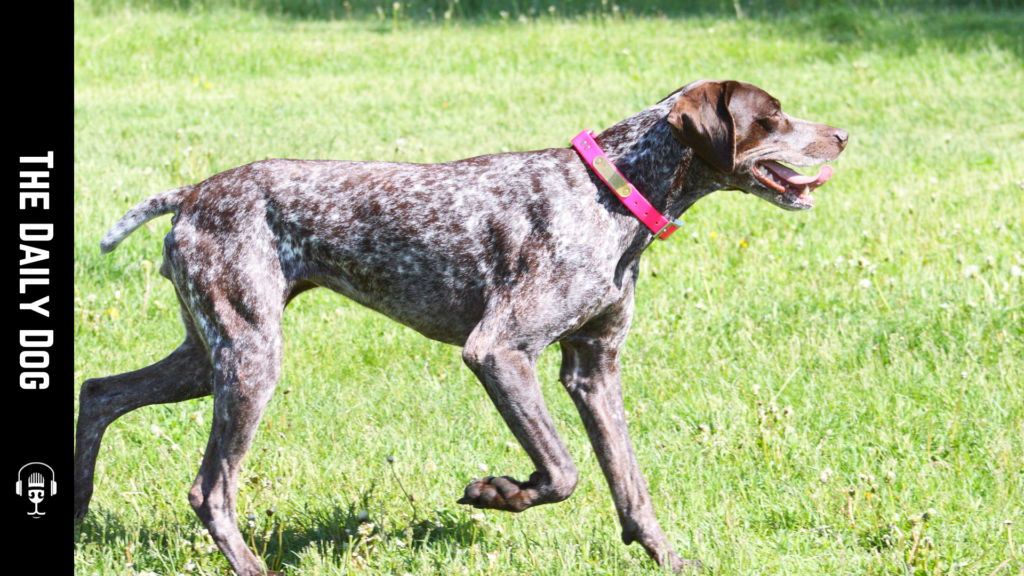The German Shorthaired Pointer (GSP) is a breed renowned for its versatility, intelligence, and energetic disposition. Originally developed in Germany for hunting, these dogs have become beloved family pets and companions worldwide. In this article, we’ll explore the characteristics, history, training, and care of the German Shorthaired Pointer, giving you insights into what makes this breed such a popular choice among dog lovers.
A Brief History of the German Shorthaired Pointer
The German Shorthaired Pointer has its roots in Germany during the late 19th century. Breeders aimed to create a versatile hunting dog capable of tracking, pointing, and retrieving game from both land and water. This breed was developed by crossing various pointer breeds with other hunting dogs, including the English Pointer and different breeds of German hunting dogs.
By the early 20th century, the German Shorthaired Pointer had gained recognition for its exceptional skills in the field. The breed was officially recognized by the German Kennel Club in 1924, and it quickly gained popularity in the United States after being introduced in the 1950s. Today, the GSP is celebrated not only for its hunting prowess but also for its affectionate nature, making it a favorite among families.
Physical Characteristics
The German Shorthaired Pointer is a medium to large-sized breed, known for its athletic build and elegant appearance. Here are some key physical traits:
- Height: Typically stands between 21 to 25 inches tall at the shoulder.
- Weight: Weighs between 45 to 70 pounds, depending on gender and genetics.
- Coat: The GSP has a short, dense, and water-resistant coat that comes in various colors, including liver, black, and combinations with white. The coat requires minimal grooming, making maintenance easy for busy pet owners.
- Eyes: The breed has expressive, dark eyes that convey intelligence and warmth.
- Ears: Long, drooping ears are characteristic of the breed, adding to its appealing look.
Temperament and Personality
One of the standout qualities of the German Shorthaired Pointer is its friendly and outgoing nature. These dogs are known for being affectionate, loyal, and eager to please their owners. Their high energy levels make them ideal companions for active individuals and families who enjoy outdoor activities.
GSPs are intelligent and quick learners, which makes training relatively straightforward. However, their eagerness to explore and play can sometimes lead to a stubborn streak, so consistent and positive reinforcement training methods are essential. Early socialization is also crucial to help them develop well-rounded personalities and reduce any potential behavioral issues.
Exercise Needs
German Shorthaired Pointers are full of energy and require plenty of exercise to stay happy and healthy. Daily walks, runs, and playtime in a secure yard are essential to meet their physical and mental stimulation needs. Ideally, GSPs thrive in active households where they can participate in outdoor activities such as hiking, running, or even agility training.
Without sufficient exercise, GSPs may become bored and engage in destructive behaviors, such as chewing or excessive barking. Engaging them in interactive games, like fetch or hide-and-seek, can also help channel their energy in a positive way.
Training Your German Shorthaired Pointer
Training a German Shorthaired Pointer can be a rewarding experience. Their intelligence and eagerness to learn make them suitable candidates for various training programs, including obedience, agility, and hunting. Here are some tips for successful training:
Start Early: Begin training and socialization during the puppy stage. Expose your GSP to various environments, people, and other animals to help them develop confidence.
Use Positive Reinforcement: Reward-based training methods work best for GSPs. Use treats, praise, and playtime to encourage desired behaviors.
Be Consistent: Establish clear commands and stick to them. Consistency helps your dog understand what is expected.
Keep Sessions Short: GSPs have a short attention span, so keep training sessions to 10-15 minutes, focusing on one or two commands at a time.
Incorporate Fun: Make training enjoyable by incorporating games and challenges. This keeps your dog engaged and eager to learn.
Health Considerations
Like all breeds, the German Shorthaired Pointer can be prone to certain health issues. Regular veterinary check-ups and a healthy diet can help prevent many common problems. Here are a few health considerations to keep in mind:
Hip Dysplasia: This genetic condition affects the hip joint and can lead to arthritis. Regular exercise and maintaining a healthy weight can mitigate risks.
Progressive Retinal Atrophy (PRA): This eye condition can lead to blindness. Regular eye exams can help detect issues early.
Bloat: GSPs are at risk for gastric torsion, or bloat, which is a life-threatening condition. Feeding smaller, more frequent meals and avoiding vigorous exercise right after eating can help reduce the risk.
Grooming and Care
German Shorthaired Pointers have relatively low grooming needs due to their short coat. Here are some grooming tips:
Brushing: Brush your GSP once a week to remove loose hair and dirt. This will also help keep their coat healthy and shiny.
Bathing: Bathe your dog as needed, usually every few months or when they get particularly dirty. Use a dog-specific shampoo to avoid skin irritation.
Nail Care: Trim your dog’s nails regularly to prevent overgrowth and discomfort.
Dental Care: Regular dental check-ups and brushing can help maintain oral health and prevent dental diseases.
The GSP as a Family Pet
The German Shorthaired Pointer is not just a hunting dog; it’s also a wonderful family pet. Their affectionate nature makes them great companions for children, as they often enjoy playing and running with them. However, supervision is essential, especially with younger children, to ensure that play remains safe and respectful.
Additionally, GSPs are known to get along well with other pets when properly socialized. Their friendly disposition and playful attitude can foster positive relationships with other dogs and even cats.
Conclusion
The German Shorthaired Pointer is a remarkable breed that embodies energy, intelligence, and loyalty. Whether you’re an avid outdoor enthusiast or a family looking for a loving companion, the GSP can fit seamlessly into your lifestyle. With their rich history as hunting dogs, they bring a unique blend of athleticism and affection to any home.
If you’re considering welcoming a German Shorthaired Pointer into your life, be prepared for a devoted, active, and intelligent companion who will undoubtedly fill your days with joy and adventure. With the right training, exercise, and care, your GSP will thrive and become an integral part of your family for years to come.










